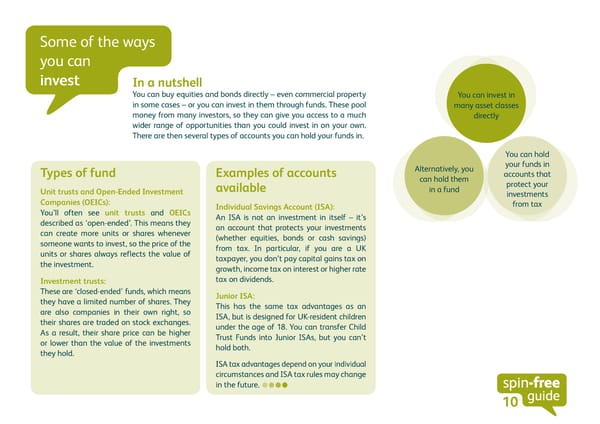Some of the ways you can invest In a nutshell You can buy equities and bonds directly – even commercial property You can invest in in some cases – or you can invest in them through funds. These pool many asset classes money from many investors, so they can give you access to a much directly wider range of opportunities than you could invest in on your own. There are then several types of accounts you can hold your funds in. You can hold Alternatively, you your funds in Types of fund Examples of accounts can hold them accounts that available in a fund protect your Unit trusts and Open-Ended Investment investments Companies (OEICs): Individual Savings Account (ISA): from tax You’ll often see unit trusts and OEICs An ISA is not an investment in itself – it’s described as ‘open-ended’. This means they an account that protects your investments can create more units or shares whenever (whether equities, bonds or cash savings) someone wants to invest, so the price of the from tax. In particular, if you are a UK units or shares always reflects the value of taxpayer, you don’t pay capital gains tax on the investment. growth, income tax on interest or higher rate Investment trusts: tax on dividends. These are ‘closed-ended’ funds, which means Junior ISA: they have a limited number of shares. They This has the same tax advantages as an are also companies in their own right, so ISA, but is designed for UK-resident children their shares are traded on stock exchanges. under the age of 18. You can transfer Child As a result, their share price can be higher Trust Funds into Junior ISAs, but you can’t or lower than the value of the investments hold both. they hold. ISA tax advantages depend on your individual circumstances and ISA tax rules may change in the future. 10
 Guide to Investing Page 9 Page 11
Guide to Investing Page 9 Page 11